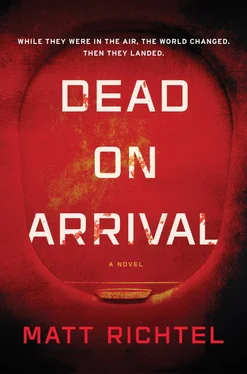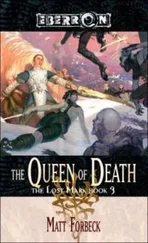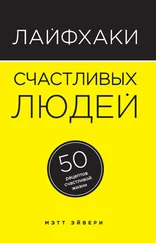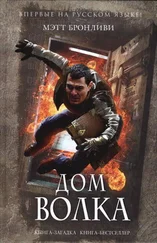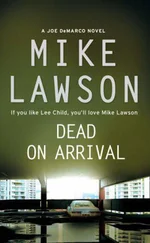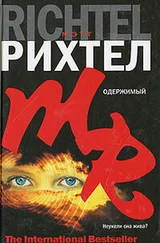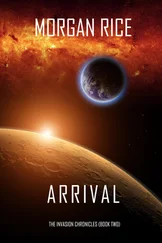“How many days?” he asked the nurse.
“Four hours.”
Lyle blanched.
A straw rested by her lips. She lacked the strength to suck or move it. A red-and-yellow scarf tied around her forehead hung damp with sweat it couldn’t absorb. The Iraqw people, Lyle had read in his file, typically lived farther north. This was among their southernmost tributaries. He could see from the slightly narrowed shape of the woman’s eyes the Asiatic genetics shared eons ago. Spittle on her chin suggested she’d been coughing. He picked up the chart by her bed and could make out the numbers even if he couldn’t read the words. Last her temperature was taken, it had been 103.8. Another number stood out: 51. Must be her age. He patted her arm and she briefly opened her eyes and he smiled.
He stood from his bench and turned to the man from the road. He kept trying to stand up. With each tiny effort, he violently coughed. You didn’t need an x-ray. Lyle could practically see the fluid in the guy’s lungs. The nurse struggled with him for a second to put on a mask and the man finally succumbed, lacking the strength to fight.
The nurse said something and Michael interpreted. “The son of the local chieftain.”
His smooth round head shone with perspiration. He leered at Lyle and set loose with coughing. Lyle understood. This man wasn’t accustomed to being defeated. Lyle lowered his eyes and gestured to the side of the bed. May I sit? He took the nonanswer as an okay. He sat. He took the man’s long arm and felt for a pulse at the wrist. Ordinarily, ill-advised, not a good place to test. But Lyle didn’t want to reach for the man’s neck. He got what he needed: 185.
“Saline, please,” Lyle said to no one. He would bet that this man’s pulse didn’t get that high facing a mother lion. With Michael’s help, he asked questions and learned the man had been sick for a day. And didn’t want help. Lyle said he understood; he wanted to help the older folks, he said, and the children. He listened and watched and thought. Not Ebola. Maybe Lassa fever.
“You have many mice?”
“This is Africa,” Michael said.
“Sir, how many dead—like you?” Lyle asked.
“Like him?” Michael asked.
“Young?”
Four. Out of a village of only sixty.
Lyle pushed the sheet up and saw the swelling in the man’s legs. The man tried to withdraw but he coughed. Then he shouted, tried to, his words swallowed by coughing.
“What’s he say?”
“The pure breeds did it.”
“What does that mean?”
An exchange followed between Michael and the nurse. Michael explained to Lyle that a new theory had emerged among the locals that had to do, of course, with religion. The Iraqw borrowed each from Islam and Christianity. In recent months, Muslim proselytizers had visited and called them heathens, promised plague. Lyle pressed the interpreter. What had the men looked like? What had they said—exactly? These visitors called the Iraqw an abomination— chukizo, in Swahili. Hell’s plague would befall them, inshallah , God willing.
Lyle saw Melanie standing in the doorway. “Go back to the truck,” he said. She had tears in her eyes.
“Go back to the truck,” he insisted.
“Don’t tell me what to do.” But she turned and left.
Outside, Lyle asked Michael if he had Internet. Yes. On Michael’s big-screen phone, Lyle pulled up an article in Nature . The article was a controversial publication, to say the least. A rare piece of truth that almost didn’t see the light of day; too dangerous. Before delving in, he walked the empty streets of the village. A dozen thatched huts, wood booths, empty, that must’ve served as some kind of market. He asked to see the well and observed it to be clean. He asked Michael about these Muslim proselytizers. Michael said it was the first he’d heard of it. When had they last come? Michael didn’t know. Why?
Lyle, leaning against a hut, was too lost in the article to answer.
“Show me the man’s hut, please.”
There was not much to see. That was the point, Lyle said, without elaborating. A broom in the corner told Lyle much of what he needed to know. The only sign of disarray owed to a glass shattered on the ground near the bed. Where the man must’ve spilled it reaching in his febrile state.
“What are you thinking, Dr. Martin?”
No response.
“You’re frightening me.”
“Looks like Coxsackie B.” True but he didn’t really believe it.
They returned to the makeshift hospital hut.
“When was the last time they were here?” Lyle asked the chieftain’s son. “The pure breeds?”
“What are you asking?” Michael said.
“Ask him, please.”
He doesn’t remember.
“A few weeks?”
“Yes.”
“What did they wear?”
Lyle listened to the translation of Swahili to the Cushitic tongue and back, then to English.
“Suits, like he said.”
“Dark skin?”
“Not this dark.”
“Did they leave you anything? A way to get in touch.”
No.
Just the warning.
“Peño, what are you doing?”
“Taking a nap.”
“In the truck.”
“Good a place as any.”
She stared at him.
“I’ve never in my life seen you act like this,” she said.
He half smiled at her, distant. “Lyle,” she said, “ say something .”
He was sitting in the last row of the safari truck. He stared at her. He shook his head, and she could tell he’d traveled to some distant place in his head. He reached behind his head and pulled out a white shirt he’d used as a pillow. He lifted it into the air, like a flag, and he waved it. Surrender.
Aday later, their airplane landed from JFK. Michael had gotten off in New York hardly able to hide his frustration. Lyle had given him nothing, bubkes, well, other than his personal symptoms of emotional withdrawal. Just turned into a fucking log. Except when he shrugged and asked for a beer. Before he’d gone totally dark, he’d also told Michael, cryptically, that the villagers didn’t need a doctor but a better police force.
“I’m realizing I don’t speak Dr. Martin,” Michael said to Melanie, trying to be as diplomatic as possible.
She didn’t share Michael’s sense of decorum. “I don’t speak asshole, either,” she said, right in front of Lyle as a taxi driver spitting chew out the window spirited them past looming Kilimanjaro in swirling winds to the airport. “If you want my interpretation, I think Lyle thinks this wasn’t caused organically.”
“Meaning what?”
“He thinks it’s a man-made virulence. Someone poisoned these people.”
It was exactly what Lyle thought. This was chemical warfare. Someone had come in here and given this tribe an intensified flu, maybe something even using CRISPR, genetically hacked viruses meant to do an end around immune systems and traditional treatments. It would explain the attack of young, strong members of the tribe, the threat by outside forces, the visitation of this virus absent any clear catalyst or patient zero and in a fairly clean community, well kept. It would explain, most of all, Lyle’s gut feeling. Maybe even some government had supported this experimentation. It would be revelatory, of course, also solvable. He scribbled down several courses of action, one of which would almost surely confine this and put it to rest.
“It’s absurd,” Michael said before he left Melanie and Lyle in their Air France seats to take his own. “He sounds like one of those nuts in Brazil with Zika.” Conspiracy theorists in Latin America had spread rumors nearly as virulent as the virus itself that the Zika-carrying mosquitoes had been planted by angry British colonialists or one-worlders. “The dean was right,” Michael concluded. He didn’t finish the thought but it was clear enough: he should’ve sought someone else’s counsel. Lyle hadn’t really tried; he’d mailed it. Lyle was just a good storyteller more interested in applause than answers, or maybe something more insidious than that—a malicious fraud. How had he gotten such a reputation? On the flight, Melanie willed herself to go to sleep. She talked again to Lyle when the landing gear came down to touch down in San Francisco.
Читать дальше
